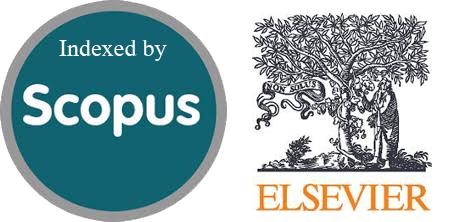Impact of Sleep Deprivation on the Central Nervous System Neurotransmitters and Immune Function in Male Albino Rats
DOI:
https://doi.org/10.54133/ajms.v9i1.2065Keywords:
Albino Rats, Immune response, Neurotransmitters, Neuroinflammation, Sleep deprivationAbstract
Background: Sleep deprivation adversely affects both the central nervous system and immune function, leading to potential alteration in behavioral and physiological responses. Objectives: To evaluate the impact of varying durations of sleep deprivation on brain neurotransmitters and immune responses in male albino rats. Methods: A total of 32 rats were allocated into four groups: control, 18-hour, 24-hour, and 72-hour sleep deprivation. Sleep deprivation was induced using gentle handling and environmental noise. Brain levels of serotonin, GABA, and glutamate were measured, as well as serum markers including TNF-α, interleukin-6 (IL-6), and total antioxidant capacity (TAC). Inflammatory responses were also assessed through complete blood counts. Brain tissues were processed using standard histological techniques and stained with H&E, followed by semi-quantitative lesion scoring using image analysis software based on neuroglial pyknosis, vascular congestion, and perivascular edema, graded on a 0–100% scale. Results: Serotonin levels initially decreased after 18 hours of sleep deprivation but normalized by 24 and 72 hours. Glutamate levels rose progressively with longer deprivation, while GABA, TAC, and IL-6 remained stable across all durations. Sleep deprivation triggered time-dependent immune changes, beginning with lymphocyte alterations and progressing to increased monocytes and inflammatory ratios, along with elevated TNF-α levels. Histopathology showed time-dependent brain damage from sleep deprivation, with severe vascular and glial changes at 72 hours, aligning with inflammatory marker elevations. Conclusions: Sleep deprivation induces specific, duration-dependent alterations in neurotransmitter and immune profiles. Prolonged deprivation, especially at 72 hours, may provoke neuroinflammatory and anxiety-related behavioral changes.
Downloads
References
Irwin MR. Why sleep is important for health: a psychoneuroimmunology perspective. Annu Rev Psychol. 2015;66:143–172. doi: 10.1146/annurev-psych-010213-115205. DOI: https://doi.org/10.1146/annurev-psych-010213-115205
Bjorvatn B, Grønli J, Hamre F, Sørensen E, Fiske E, Bjørkum AA, et al. Effects of sleep deprivation on extracellular serotonin in hippocampus and frontal cortex of the rat. Neuroscience. 2002;113(2):323–330. doi: 10.1016/s0306-4522(02)00181-1. DOI: https://doi.org/10.1016/S0306-4522(02)00181-1
Grandner MA. Epidemiology of insufficient sleep. In: Pack AI, Li QY, (Eds), Sleep and its Disorders. Dordrecht: Springer Netherlands; 2022 [cited 2025 Jan 14]. p. 95–114. doi: 10.1007/978-94-024-2168-2_5. DOI: https://doi.org/10.1007/978-94-024-2168-2_5
Ferrie JE, Kumari M, Salo P, Singh-Manoux A, Kivimaki M. Sleep epidemiology--a rapidly growing field. Int J Epidemiol. 2011;40(6):1431–1437. doi: 10.1093/ije/dyr203. DOI: https://doi.org/10.1093/ije/dyr203
Killgore WDS. Effects of sleep deprivation on cognition. In: Progress in Brain Research. Elsevier; 2010 [cited 2024 Dec 25]. p. 105–29. doi: 10.1016/B978-0-444-53702-7.00007-5. DOI: https://doi.org/10.1016/B978-0-444-53702-7.00007-5
Vyazovskiy VV, Harris KD. Sleep and the single neuron: the role of global slow oscillations in individual cell rest. Nat Rev Neurosci. 2013;14(6):443–451. doi: 10.1038/nrn3494. DOI: https://doi.org/10.1038/nrn3494
Gottesmann C. GABA mechanisms and sleep. Neuroscience. 2002;111(2):231–239. DOI: 10.1016/s0306-4522(02)00034-9. DOI: https://doi.org/10.1016/S0306-4522(02)00034-9
Zhou Y, Danbolt NC. Glutamate as a neurotransmitter in the healthy brain. J Neural Transm. 2014;121(8):799–817. doi: 10.1007/s00702-014-1180-8. DOI: https://doi.org/10.1007/s00702-014-1180-8
Tzingounis AV, Wadiche JI. Glutamate transporters: confining runaway excitation by shaping synaptic transmission. Nat Rev Neurosci. 2007;8(12):935–947. doi: 10.1038/nrn2274. DOI: https://doi.org/10.1038/nrn2274
Vaccaro A, Kaplan Dor Y, Nambara K, Pollina EA, Lin C, Greenberg ME, et al. Sleep loss can cause death through accumulation of reactive oxygen species in the gut. Cell. 2020;181(6):1307-1328. doi: 10.1016/j.cell.2020.04.049. DOI: https://doi.org/10.1016/j.cell.2020.04.049
Marouf BH, Zalzala MH, Al-Khalifa II, Aziz TA, Hussain SA. Free radical scavenging activity of silibinin in nitrite-induced hemoglobin oxidation and membrane fragility models. Saudi Pharm J. 2011 Jul;19(3):177–1783. doi: 10.1016/j.jsps.2011.03.006. DOI: https://doi.org/10.1016/j.jsps.2011.03.006
Mahmood NN, Rashid BM, Abdulla SK, Marouf BH, Hamaamin KS, Othman HH. Effects of zofenopril and thymoquinone in cyclophosphamide-induced urotoxicity and nephrotoxicity in rats; The value of their anti-inflammatory and antioxidant properties. J Inflamm Res. 2025;18:3657-3676. doi: 10.2147/JIR.S500375. DOI: https://doi.org/10.2147/JIR.S500375
Bushey D, Tononi G, Cirelli C. Sleep and synaptic homeostasis: Structural evidence in drosophila. Science. 2011;332(6037):1576–1581. doi: 10.1126/science.1202839. DOI: https://doi.org/10.1126/science.1202839
Tononi G, Cirelli C. Sleep and the price of plasticity: From synaptic and cellular homeostasis to memory consolidation and integration. Neuron. 2014;81(1):12–34. doi: 10.1016/j.neuron.2013.12.025. DOI: https://doi.org/10.1016/j.neuron.2013.12.025
Tan BL, Norhaizan ME, Liew WPP, Sulaiman Rahman H. Antioxidant and oxidative stress: A mutual interplay in age-related diseases. Front Pharmacol. 2018;9:1162. doi: 10.3389/fphar.2018.01162. DOI: https://doi.org/10.3389/fphar.2018.01162
Sun J, Wu J, Hua F, Chen Y, Zhan F, Xu G. Sleep deprivation induces cognitive impairment by increasing blood-brain barrier permeability via CD44. Front Neurol. 2020;11:563916. doi: 10.3389/fneur.2020.563916. DOI: https://doi.org/10.3389/fneur.2020.563916
Zhuravliova E, Barbakadze T, Jojua N, Zaalishvili E, Shanshiashvili L, Natsvlishvili N, et al. Synaptic and non-synaptic mitochondria in hippocampus of adult rats differ in their sensitivity to hypothyroidism. Cell Mol Neurobiol. 2012;32(8):1311–1321. doi: 10.1007/s10571-012-9857-8. DOI: https://doi.org/10.1007/s10571-012-9857-8
Xie L, Kang H, Xu Q, Chen MJ, Liao Y, Thiyagarajan M, et al. Sleep drives metabolite clearance from the adult brain. Science. 2013;342(6156):373–377. doi: 10.1126/science.1241224. DOI: https://doi.org/10.1126/science.1241224
Almondes KMD, Marín Agudelo HA, Jiménez-Correa U. Impact of sleep deprivation on emotional regulation and the immune system of healthcare workers as a risk factor for COVID 19: Practical recommendations from a Task Force of the Latin American Association of Sleep Psychology. Front Psychol. 2021;12:564227. doi: 10.3389/fpsyg.2021.564227. DOI: https://doi.org/10.3389/fpsyg.2021.564227
Irwin MR, Carrillo C, Olmstead R. Sleep loss activates cellular markers of inflammation: Sex differences. Brain Behav Immun. 2010;24(1):54–57. doi: 10.1016/j.bbi.2009.06.001. DOI: https://doi.org/10.1016/j.bbi.2009.06.001
Tadavarty R, Rajput PS, Wong JM, Kumar U, Sastry BR. Sleep-deprivation induces changes in GABAB and mGlu receptor expression and has consequences for synaptic long-term depression. PLoS One. 2011;6(9):e24933. doi: 10.1371/journal.pone.0024933. DOI: https://doi.org/10.1371/journal.pone.0024933
Parrish JB, Teske JA. Acute partial sleep deprivation due to environmental noise increases weight gain by reducing energy expenditure in rodents. Obesity. 2017;25(1):141–146. doi: 10.1002/oby.21703. DOI: https://doi.org/10.1002/oby.21703
Mavanji V, Teske JA, Billington CJ, Kotz CM. Partial sleep deprivation by environmental noise increases food intake and body weight in obesity‐resistant rats. Obesity. 2013;21(7):1396–1405. doi: 10.1002/oby.20182. DOI: https://doi.org/10.1002/oby.20182
Rabat A, Bouyer JJ, Aran JM, Le Moal M, Mayo W. Chronic exposure to an environmental noise permanently disturbs sleep in rats: Inter-individual vulnerability. Brain Res. 2005;1059(1):72–82. doi: 10.1016/j.brainres.2005.08.015. DOI: https://doi.org/10.1016/j.brainres.2005.08.015
Fernstrom JD. Role of precursor availability in control of monoamine biosynthesis in brain. Physiol Rev. 1983;63(2):484–546. doi: 10.1152/physrev.1983.63.2.484. DOI: https://doi.org/10.1152/physrev.1983.63.2.484
Menon JML, Nolten C, Achterberg EJM, Joosten RNJMA, Dematteis M, Feenstra MGP, et al. Brain microdialysate monoamines in relation to circadian rhythms, sleep, and sleep deprivation – a systematic review, network meta-analysis, and new primary data. J Circad Rhyth. 2019;17(1):1. doi: 10.5334/jcr.174. DOI: https://doi.org/10.5334/jcr.174
Duman RS, Aghajanian GK. Synaptic dysfunction in depression: Potential therapeutic targets. Science. 2012;338(6103):68–72. doi: 10.1126/science.1222939. DOI: https://doi.org/10.1126/science.1222939
Tsujino N, Sakurai T. Role of orexin in modulating arousal, feeding, and motivation. Front Behav Neurosci. 2013;7. doi: 10.3389/fnbeh.2013.00028. DOI: https://doi.org/10.3389/fnbeh.2013.00028
Bornstein SR, Chrousos GP. Adrenocorticotropin (ACTH)- and non-ACTH-mediated regulation of the adrenal cortex: Neural and immune inputs. J Clin Endocrinol Metab. 1999;84(5):1729–1736. doi: 10.1210/jcem.84.5.5631. DOI: https://doi.org/10.1210/jcem.84.5.5631
Castrén E, Rantamäki T. The role of BDNF and its receptors in depression and antidepressant drug action: Reactivation of developmental plasticity. Develop Neurobiol. 2010;70(5):289–297. doi: 10.1002/dneu.20758. DOI: https://doi.org/10.1002/dneu.20758
Kaufman J, DeLorenzo C, Choudhury S, Parsey RV. The 5-HT1A receptor in major depressive disorder. Eur Neuropsychopharmacol. 2016;26(3):397–410. doi: 10.1016/j.euroneuro.2015.12.039. DOI: https://doi.org/10.1016/j.euroneuro.2015.12.039
Tremblay MÈ, Stevens B, Sierra A, Wake H, Bessis A, Nimmerjahn A. The role of microglia in the healthy brain. J Neurosci. 2011;31(45):16064–16069. doi: 10.1523/JNEUROSCI.4158-11.2011. DOI: https://doi.org/10.1523/JNEUROSCI.4158-11.2011
Elmenhorst D, Mertens K, Kroll T, Oskamp A, Ermert J, Elmenhorst E, et al. Circadian variation of metabotropic glutamate receptor 5 availability in the rat brain. J Sleep Res. 2016;25(6):754–761. doi: 10.1111/jsr.12432. DOI: https://doi.org/10.1111/jsr.12432
Lee SE, Lee Y, Lee GH. The regulation of glutamic acid decarboxylases in GABA neurotransmission in the brain. Arch Pharm Res. 2019;42(12):1031–1039. doi: 10.1007/s12272-019-01196-z. DOI: https://doi.org/10.1007/s12272-019-01196-z
Del Cid-Pellitero E, Plavski A, Mainville L, Jones BE. Homeostatic changes in GABA and glutamate receptors on excitatory cortical neurons during sleep deprivation and recovery. Front Syst Neurosci. 2017;11. doi: 10.3389/fnsys.2017.00017. DOI: https://doi.org/10.3389/fnsys.2017.00017
Weigend S, Holst SC, Treyer V, O’Gorman Tuura RL, Meier J, Ametamey SM, et al. Dynamic changes in cerebral and peripheral markers of glutamatergic signaling across the human sleep–wake cycle. Sleep. 2019;42(11):zsz161. doi: 10.1093/sleep/zsz161. DOI: https://doi.org/10.1093/sleep/zsz161
Minkel J, Moreta M, Muto J, Htaik O, Jones C, Basner M, et al. Sleep deprivation potentiates HPA axis stress reactivity in healthy adults. Health Psychol. 2014;33(11):1430–1434. doi: 10.1037/a0034219. DOI: https://doi.org/10.1037/a0034219
Lungato L, Marques MS, Pereira VG, Hix S, Gazarini ML, Tufik S, et al. Sleep deprivation alters gene expression and antioxidant enzyme activity in mice splenocytes. Scand J Immunol. 2013;77(3):195–199. doi: 10.1111/sji.12029. DOI: https://doi.org/10.1111/sji.12029
D’Almeida V, Hipólide DC, Lobo LL, De Oliveira AC, Nobrega JN, Tufik S. Melatonin treatment does not prevent decreases in brain glutathione levels induced by sleep deprivation. Eur J Pharmacol. 2000;390(3):299–302. doi: 10.1016/s0014-2999(99)00924-3. DOI: https://doi.org/10.1016/S0014-2999(99)00924-3
Zhang L, Zhang HQ, Liang XY, Zhang HF, Zhang T, Liu FE. Melatonin ameliorates cognitive impairment induced by sleep deprivation in rats: Role of oxidative stress, BDNF and CaMKII. Behav Brain Res. 2013;256:72–81. doi: 10.1016/j.bbr.2013.07.051. DOI: https://doi.org/10.1016/j.bbr.2013.07.051
Zhang K, Li YJ, Feng D, Zhang P, Wang YT, Li X, et al. Imbalance between TNFα and progranulin contributes to memory impairment and anxiety in sleep-deprived mice. Sci Rep. 2017;7(1):43594. doi: 10.1038/srep43594. DOI: https://doi.org/10.1038/srep43594
Moore KW, De Waal Malefyt R, Coffman RL, O’Garra A. Interleukin-10 and the interleukin-10 receptor. Annu Rev Immunol. 2001;19(1):683–765. doi: 10.1146/annurev.immunol.19.1.683. DOI: https://doi.org/10.1146/annurev.immunol.19.1.683
Alotiby A. Immunology of stress: A review article. J Clin Med. 2024;13(21):6394. doi: 10.3390/jcm13216394. DOI: https://doi.org/10.3390/jcm13216394
Vgontzas AN, Papanicolaou DA, Bixler EO, Lotsikas A, Zachman K, Kales A, et al. Circadian interleukin-6 secretion and quantity and depth of sleep. J Clin Endocrinol Metab. 1999;84(8):2603–2607. doi: 10.1210/jcem.84.8.5894. DOI: https://doi.org/10.1210/jcem.84.8.5894
Irwin MR, Opp MR. Sleep health: Reciprocal regulation of sleep and innate immunity. Neuropsychopharmacol. 2017;42(1):129–155. doi: 10.1038/npp.2016.148. DOI: https://doi.org/10.1038/npp.2016.148
Möller-Levet CS, Archer SN, Bucca G, Laing EE, Slak A, Kabiljo R, et al. Effects of insufficient sleep on circadian rhythmicity and expression amplitude of the human blood transcriptome. Proc Natl Acad Sci USA. 2013;110(12). doi: 10.1073/pnas.1217154110. DOI: https://doi.org/10.1073/pnas.1217154110
Mahalakshmi AM, Ray B, Tuladhar S, Bhat A, Bishir M, Bolla SR, et al. Sleep, brain vascular health and ageing. GeroScience. 2020;42(5):1257–1283. doi: 10.1007/s11357-020-00235-8. DOI: https://doi.org/10.1007/s11357-020-00235-8

Downloads
Published
How to Cite
Issue
Section
License
Copyright (c) 2025 Al-Rafidain Journal of Medical Sciences ( ISSN 2789-3219 )

This work is licensed under a Creative Commons Attribution-NonCommercial-ShareAlike 4.0 International License.
Published by Al-Rafidain University College. This is an open access journal issued under the CC BY-NC-SA 4.0 license (https://creativecommons.org/licenses/by-nc-sa/4.0/).











